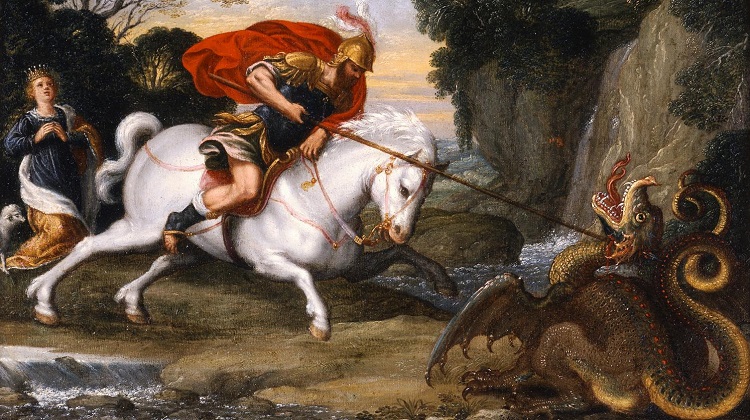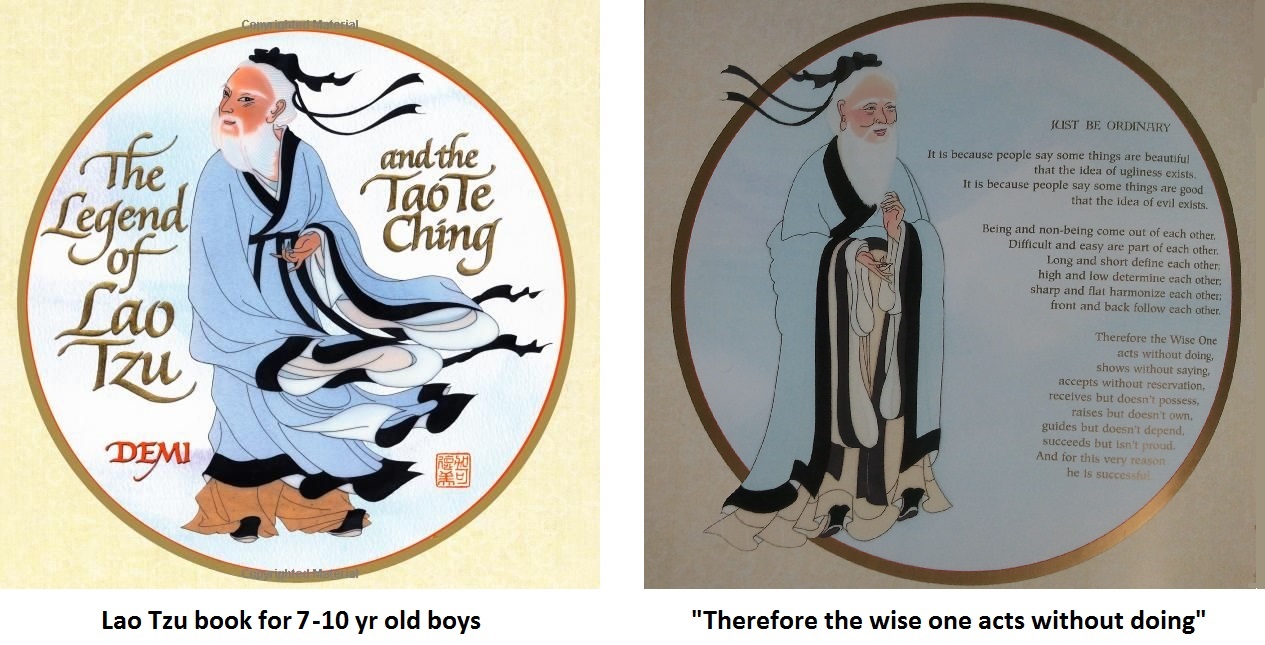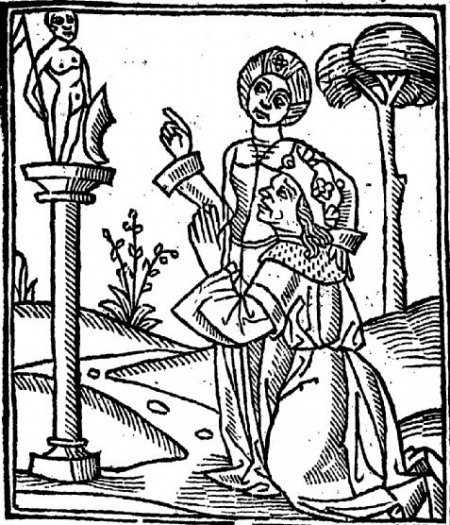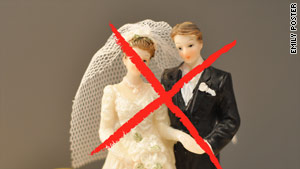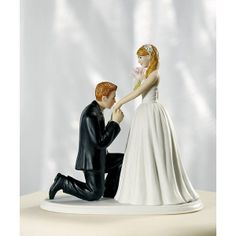Lester F. Ward (1841 – 1913) was among the first to champion a biological theory of gynocentrism. Ward is now considered a feminist writer by historians such as Ann Taylor Allen.1 The following is an excerpt from his longer work entitled Pure Sociology, published in 1903. – PW
__________________________________________
The gynæcocentric theory
The gynæcocentric theory is the view that the female sex is primary and the male secondary in the organic scheme, that originally and normally all things center, as it were, about the female, and that the male, though not necessary in carrying out the scheme, was developed under the operation of the principle of advantage to secure organic progress through the crossing of strains. The theory further claims that the apparent male superiority in the human race and in certain of the higher animals and birds is the result of specialization in extra-normal directions due to adventitious causes which have nothing to do with the general scheme, but which can be explained on biological and psychological principles; that it only applies to certain characters, and to a relatively small number of genera and families. It accounts for the prevalence of the androcentric theory by the superficial character of human knowledge of such subjects, chiefly influenced by the illusion of the near, but largely, in the case of man at least, by tradition, convention, and prejudice.
History of the Theory
As this theory is not only new but novel, and perhaps somewhat startling, it seems proper to give a brief account of its inception and history, if it can be said to have such. As the theory, so far as I have ever heard, is wholly my own, no one else having proposed or even defended it, scarcely any one accepting it, and no one certainly coveting it, it would be folly for me to pretend indifference to it. At the same time it must rest on facts that cannot be disputed, and the question of its acceptance or rejection must become one of interpreting the facts.
In the year 1888 there existed in Washington what was called the Six o’clock Club, which consisted of a dinner at a hotel followed by speeches by the members of the Club according to a programme. The Fourteenth Dinner of the Club took place on April 26, 1888, at Willard’s Hotel. It was known to the managers that certain distinguished women would be in Washington on that day, and they were invited to the Club. Among these were Mrs. Elizabeth Cady Stanton, Miss Phoebe Couzins, Mrs. Croly (Jennie June), Mrs. N. P. Willis, and a number of others equally well known. On their account the subject of Sex Equality was selected for discussion, and I was appointed to open the debate. Although in a humorous vein, I set forth the greater part of the principles and many of the facts of what I now call the gynæcocentric theory.
Professor C. V. Riley was present and, I think, took part in the discussion. Many of my facts were drawn from insect life, and especially interested him. I mention this because a long time afterward he brought me a newspaper clipping from the Household Companion for June, 1888, containing a brief report of my remarks copied from the St. Louis Globe, but crediting them to him; and he apologized for its appearance saying that he could not explain the mistake. The reporter had fairly seized the salient points of the theory and presented them in a manner to which I could not object. This, therefore, was the first time the theory can be said to have been stated in print. The exact date at which it appeared in the Globe I have not yet learned, but presume it was shortly after the meeting of the Club. Professor Riley did not hesitate to announce himself a convert to the theory, and we often discussed it together.
I had long been reflecting along this line, and these events only heightened my interest in the subject. The editor of the Forum had solicited an article from me, and I decided to devote it to a popular but serious presentation of the idea. The result was my article entitled, “Our Better Halves.” 3 That article, therefore, constitutes the first authorized statement of the gynæcocentric theory that was published, and as a matter of fact it is almost the only one. Mr. Grant Allen answered my argument on certain points in the same magazine,4 and I was asked to put in a rejoinder, which I did,5 but these discussions related chiefly to certain differences between the mind of man and woman and did not deal with the question of origin. I alluded to it in my first presidential address before the Biological Society of Washington,6 and it came up several times in writing the “Psychic Factors” (Chapters XIV, XXVI).
Such is the exceedingly brief history of the gynæcocentric theory, and if it is entirely personal to myself, this is no fault of mine. Nothing pleases me more than to see in the writings of others any intimation, however vague and obscure, that the principle has been perceived, and I have faithfully searched for such indications and noted all I have seen. The idea has not wholly escaped the human mind, but it is never presented in any systematic way. It is only occasionally shadowed forth in connection with certain specific facts that call forth some passing reflection looking in this general direction. In introducing a few of these adumbrations I omit the facts, which will be considered under the several heads into which the subject will naturally fall, and confine myself for the most part to the reflections to which they have given rise. Many of these latter, however, are of a very general character, and not based on specific facts. In fact thus far the theory has had rather the form of a prophetic idea than of a scientific hypothesis.
We may begin as far back as Condorcet, who brushed aside the conventional error that intellect and the power of abstract reasoning are the only marks of superiority and caught a glimpse of the truth that lies below them when he said: –
If we try to compare the moral energy of women with that of men, taking into consideration the necessary effect of the inequality with which the two sexes have been treated by laws, institutions, customs, and prejudices, and fix our attention on the numerous examples that they have furnished of contempt for death and suffering, of constancy in their resolutions and their convictions, of courage and intrepidity, and of greatness of mind, we shall see that we are far from having the proof of their alleged inferiority. Only through new observations can a trite light be shed upon the question of the natural inequality of the two sexes.7
Comte, as all know, changed his attitude toward women after his experiences with Clotilde de Vaux, but even in his “Positive Philosophy,” in which he declared them to be in a state of “perpetual infancy,” and of “fundamental inferiority,” be admitted that they had a “secondary superiority considered from the social point of view.”8 In his “Positive Polity” he expressed himself much more strongly, saying that the female sex “is certainly superior to ours in the most fundamental attribute of the human species, the tendency to make sociability prevail over personality.”9 He also says that “feminine supremacy becomes evident when we consider the spontaneous disposition of the affectionate sex (sexe aimant) always to further morality, the sole end of all our conceptions.”10
Of all modern writers the one most free from the androcentric bias, so far as I am aware, is Mr. Havelock Ellis. In his excellent book “Man and Woman,” be has pointed out many of the fallacies of that Weltanschauung, and without apparent leaning toward anything but the truth has placed woman in a far more favorable light than it is customary to view her. While usually confining himself to the facts, he occasionally indicates that their deeper meaning has not escaped him. Thus he says: “The female is the mother of the new generation, and has a closer and more permanent connection with the care of the young; she is thus of greater importance than the male from Nature’s point of view” (pp. 383-384). To him is also due, the complete refutation of the “arrested development” theory, above mentioned, by showing that the child, and the young generally, represent the most advanced type of development, while the adult male represents a reversion to an inferior early type, and this in man is a more bestial type.
In the sayings quoted thus far we have little more than opinions, or general philosophical tenets, of which it would be much easier to find passages with the opposite import. In fact statements of the androcentric theory are to be met with everywhere. Not only do philosophers and popular writers never tire of repeating its main propositions, but anthropologists and biologists will go out of their way to defend it while at the same time heaping up facts that really contradict it and strongly support the gynæcocentric theory. This is due entirely to the power of a predominant world view (Weltanschauung). The androcentric theory is such a world view that is deeply stamped upon the popular mind, and the history of human thought has demonstrated many times that scarcely any number of facts opposed to such a world view can shake it. It amounts to a social structure and has the attribute of stability in common with other social structures. Only occasionally will a thinking investigator pause to consider the true import of the facts he is himself bringing to light.
Bachofen, McLennan, Morgan, and the other ethnologists who have contributed to our knowledge of the remarkable institution or historic phase called the matriarchate, all stop short of stating the full significance of these phenomena, and the facts of amazonism that are so often referred to as so many singular anomalies and reversals of the natural order of things, are never looked at philosophically as residual facts that must be explained even if they overthrow many current beliefs. Occasionally some one will take such facts seriously and dare to intimate a doubt as to the prevailing theory. Thus I find in Ratzenhofer’s work the following remark: –
It is probable that in the horde there existed a certain individual equality between man and woman; the results of our investigation leave it doubtful whether the man always had a superior position. There is much to indicate that the woman was the uniting element in the community; the mode of development of reproduction in the animal world and the latest investigations into the natural differences between man and woman give rise to the assumption that the woman of to-day is the atavistic product of the race, while the man varies more frequently and more widely. This view agrees perfectly with the nature of the social process, for in the horde, as the social form out of which the human race has developed, there existed an individual equality which has only been removed by social disturbances which chiefly concern the man.
All the secondary sexual differences in men are undoubtedly explained by the struggle for existence and the position of man in the community as conditioned thereby. Even the security of the horde from predatory animals, and still more the necessity of fighting with other men for the preservation of the group, developed individual superiority in general, both mental and physical, and especially in man. But any individual superiority disturbed the equality existing in the elements of the horde; woman from her sexual nature took only a passive part in these disturbances. The sexual life as well as the mode of subsistence no longer has its former peaceful character. Disturbances due to the demands of superior individuals thrive up to a certain point, beyond which the differentiation of the group into several takes place.11
Among biologists the philosophical significance of residual facts opposed to current beliefs is still less frequently reflected upon. I have stated that Professor Riley fully accepted the view that I set forth and admitted that the facts of entomology sustained it, yet, although somewhat of a philosopher himself, and living in the midst of the facts, the idea had not previously occurred to him. Among botanists, Professor Mechan was the only one in whose writings I have found an adumbration of the gynæcocentric theory. He several times called attention to a certain form of female superiority in plants. In describing certain peculiarities in the Early Meadow Rue and comparing the development of the male and female flowers he observed differences due to sex. After describing the female flowers he says: –
By turning to the male flowers (Fig. 2) we see a much greater number of bracts or small leaves scattered through the panicle, and find the pedicels longer than in the female; and this shows a much slighter effort – a less expenditure of force – to be required in forming male than female flowers. A male flower, as we see clearly here, is an intermediate stage between a perfect leaf and a perfect, or we may say, a female flower. It seems as if there might be as much truth as poetry in the expression of Burns, –
Her ‘prentice han’ she tried on man,
An’ then she made the lasses, O,
— at least in so far as the flowers are concerned, and in the sense of a higher effort of vital power.12
It is singular, but suggestive that he should have quoted the lines from Burns in this connection, as they are an undoubted echo of the androcentric world view, a mere variation upon the Biblical myth of the rib. Of course he could find nothing on his side in the classic literature of the world, but wishing to embellish the idea in a popular work, he tried to make these somewhat ambiguous lines do duty in this capacity. The fact cited is only one of thousands that stand out clearly before the botanist, but not according with the accepted view of the relations of the sexes they are brushed aside as worthless anomalies and “exceptions that prove the rule.” In fact in all branches of biology the progress of truth has been greatly impeded by this spirit. All modern anatomists know how the facts that are now regarded as demonstrating the horizontal position of the ancestors of man, and in general those that establish the doctrine of evolution, were treated by the older students of the human body — rejected, ignored, and disliked, as intruders that interfered with their investigations. It is exactly so now with gynaecocentric facts, and we are probably in about the same position and stage with reference to the questions of sex as were the men of the eighteenth century with reference to the question of evolution. Indeed, the androcentric theory may be profitably compared with the geocentric theory, and the gynaecocentric with the heliocentric. The advancement of truth has always been in the direction of supplanting the superficial and apparent by the fundamental and real, and the gynaecocentric truth may be classed among the “paradoxes of nature.”
***
Origin of the Male Sex. — Although reproduction and sex are two distinct things, and although a creature that reproduces without sex cannot properly be called either male or female, still, so completely have these conceptions become blended in the popular mind that a creature which actually brings forth offspring out of its own body is instinctively classed as female. The female is the fertile sex, and whatever is fertile is looked upon as female. Assuredly it would be absurd to look upon an organism propagating asexually as male. Biologists have proceeded from this popular standpoint, and regularly speak of “mother-cells” and “daughter-cells.” It therefore does no violence to language or to science to say that life begins with the female organism and is carried on a long distance by means of females alone. In all the different forms of asexual reproduction, from fission to parthenogenesis, the female may in this sense be said to exist alone and perform all the functions of life including reproduction. In a word, life begins as female.
The further development of life serves to strengthen this gynæcocentric point of view. It consists, as we might say, exclusively in the history of the subsequent origin and development of the male sex. The female sex, which existed from the beginning, continues unchanged, but the male sex, which did not exist at the beginning, makes its appearance at a certain stage, and has a certain history and development, but never became universal, so but that, as already remarked, there are probably many more living beings without it than with it, even in the present life of the globe. The female is not only the primary and original sex but continues throughout as the main trunk, while to it a male element is afterward added for the purposes above explained. The male is therefore, as it were, a mere afterthought of nature. Moreover, the male sex was at first and for a long period, and still throughout many of the lower orders of beings, devoted exclusively to the function for which it was created, viz., that of fertilization. Among millions of humble creatures the male is simply and solely a fertilizer.
The simplest type of sexuality consists in the normal continuance of the original female form with the addition of an insignificant and inconspicuous male fertilizer, incapable of any other function. In sexual cells there is no character in which the differentiation goes so far as in that of size. The female or germ cell is always much larger than the male or sperm cell. In the human species, for example, an ovum is about 3000 times as large as a spermatozoon. In the parasitic Sphcerularia Bombi the female is a thousand or many thousand times the size of the male. The Cirripedia present remarkable examples of female superiority, or rather of the existence of minute male fertilizers in connection with normal development in the female. Darwin was perhaps the first to call attention to this fact in a letter to Sir Charles Lyell, dated Sept. 14, 1849, in which he said : —
The other day I got a curious case of a unisexual, instead of hermaphrodite cirripede, in which the female had the common cirripedial character, and in two valves of her shell had two little pockets, in each of which she kept a little husband ; I do not know of any other case where a female invariably has two husbands. I have one still odder fact, common to several species, namely, that though they are hermaphrodite, they have small additional, or as I shall call them, complemental males, one specimen, itself hermaphrodite, had no less than seven of these complemental males attached to it. Truly the schemes and wonders of Nature are illimitable.
Darwin’s observations have been abundantly confirmed by later investigators. Huxley asserts the parasitic nature of the male in certain cases, the male being attached to the female and living at her expense. Van Beneden, to practically the same effect, remarks
that “the whole family of the Abdominalia [cirripedes] have the sexes separate; and the males, comparatively very small, are attached to the body of each female.”
The phenomenon of minute parasitic males is not rare among the lower forms, and that their sole office is fertilization may be clearly seen from the following statement of Milne Edwards : ” It is to be noted that in some of these parasites [Ex. Diplozoon paradoxum, a nematode] the entire visceral cavity was occupied by the testicles, and that Mr. Darwin could not discover in it any trace of digestive organs.” Van Beneden also says that the males are reduced to the role of spermatophores : “The male of the Syngami (nematodes) is so far effaced that it is no longer anything but a testicle living on the female.” These of course are extreme cases, and the difference is less in most of the animal world, the reason for which will be shown later on. But the examples cited serve to show how sexuality began. Female superiority, however, of a more or less marked degree still prevails throughout the greater part of the invertebrates. It is perhaps greatest among the Arachnidae or spider family. The courtships of spiders are so often described in popular works that allusion to them almost calls for an apology. They are always regarded as astonishing anomalies in the animal world. While the behavior of the relatively gigantic female in seizing and devouring the tiny male fertilizer when he is only seeking to do the only duty that he exists for, may seem remarkable and even contrary to the interests of nature, the fact of the enormous difference between the female and the male, is, according to the gynaecocentric hypothesis, not anomalous at all, but perfectly natural and normal.
In the mantis or praying insect there is much less difference in size than in most spiders, but female superiority shows itself in the ferocity of the female, while the paramount importance of the act of fertilization is clear from the terrible risks that the male takes in securing it, usually resulting in his destruction. I give an example on the authority of one of the best known entomologists :—
A few days since I brought a male of Mantis Carolina to a friend who had been keeping a solitary female as a pet. Placing them in the same jar, the male, in alarm, endeavored to escape. In a few minutes the female succeeded in grasping him. She first bit off his left front tarsus, and consumed the tibia and femur. Next she gnawed out his left eye. At this the male seemed to realize his proximity to one of the opposite sex, and began vain endeavors to mate. The female next ate up his right front leg, and then entirely decapitated him, devouring his head and gnawing into his thorax. Not until she had eaten all of his thorax except about three millimeters did she atop to rest. All this while the male had continued his vain attempts to obtain entrance at the valvules, and he now succeeded, as she voluntarily spread the parts open, and union took place. She remained quiet for four hours, and the remnant of the male gave occasional signs of life by a movement of one of his remaining tarsi for three hours. The next morning she had entirely rid herself of her spouse, and nothing but his wings remained.
The extraordinary vitality of the species which permits a fragment of the male to perform the act of impregnation is necessary on account of the rapacity of the female, and it seems to be only by accident that a male ever escapes alive from the embraces of his partner.
Riley in his first monthly report, p. 151, says: “The female being the strongest and most voracious, the male, in making his advances, has to risk his life many times, and only succeeds in grasping her by slyly and suddenly surprising her ; and even then he frequently gets remorselessly devoured.”
In insects generally the males ai-e smaller than the females, especially in the imago state. It applies to the larvae to a less extent, but it is often marked even in the cocoons, as, for example, of the silk worm. There are many species, and even genera, belonging to different orders, in which the male, usually smaller and more slender, is either not provided with any functional organs for eating, or has these so imperfectly developed that it seems improbable that it succeeds in sustaining life beyond the period that the nourishment stored up in the larval state will continue it. This clearly shows that the sole function of such males is fertilization. Some of these cases come very close home to us, for example, the mosquito. Dr. Howard says:—
It is a well-known fact that the adult male mosquito does not necessarily take nourishment and that the adult female does not necessarily rely on the blood of warm-blooded animals. The mouth parts of the male are so different from those of the female that it is probable that if it feeds at all it obtains its food in a quite different manner from the female. They are often observed sipping at drops of water, and in one instance a fondness for molasses has been recorded.
Bees constitute another familiar example, the males being what are popularly known as the drones. Fertilization, as is well known, is almost their only role, and if they become at all numerous they are killed off by the workers (neutral females), and the hive is rid of them. But great differences between the sexes, always involving some form of female superiority, occur also in the Neuroptera, Lepidoptera, Orthoptera, and Coleoptera. In the other great types of invertebrates this is also true, but only the specialists are acquainted with the facts. Even in the lower vertebrates there are cases of female superiority. The smallest known vertebrate, Heterandria formosa Agassiz, has the females about twenty-five per cent larger than the males. Male fishes are commonly smaller than female. In trout this is well known, and trout fishermen sometimes throw the little males or ” studs,” as they call them, back into the stream, as not worth taking. Even in birds, which are the mainstay of the androcentric theory, there are some large families, as, for example, the hawks, in which male superiority is rare, and the female is usually the larger and finer bird. There are even some mammals in which the sexes do not differ appreciably in size or strength, and very little, or not at all, in coloration and adornment. Such is the case with nearly all of the great family of rodents. It is also the case with the Erinaceidae, at least with its typical subfamily of hedgehogs.
All that was said of the Protozoa applies equally to the Protophyta, and indeed in those unicellular forms the distinction between plant and animal is very obscure, Haeckel making a third kingdom of nature, the Protista, which is neither plant nor animal. But the evolution of the male sex in multicellular plants is somewhat different from that of the Metazoa. In dealing with such plants much depends on what we regard as constituting an individual. If we take the growing branch or phyton as the unit of individuality, it may perhaps be truly said that sexual differentiation is universal in the vegetable kingdom. But if we make the individual include all that proceeds from the same root and coheres in one organic system—the whole plant—then we have the following grades of sexuality : 1, hermaphroditism, in which both male and female organs occur in the same flower ; 2, monoecism, in which the flowers are either male or female, but both sexes occur on the same plant ; and 3, dioecism, in which every plant is either wholly male or wholly female. In the flowerless plants—thallophytes, bryophytes, pteridophytes, formerly known as cryptogams—the sexual cells are borne in a variety of ways, usually separated some distance from each other, often on different plants, but here there occurs in most cases a compound generation, consisting of a short-lived prothallium stage— the true sexual stage—succeeded by a sporebearing stage constituting the principal life of the plant. This peculiarity has no important bearing on the theory under consideration, and being too complicated to be explained without extensive illustration, it need not be dwelt upon here. An acquaintance with it belongs to a proper understanding of botany such as the student of sociology should have.
Confining our attention, then, to the flowering plants, we have to note first that the Cycadaceae and Ginkgoaceae form two apparently different transitions from the flowerless to the flowering plants, in that they are both fertilized by means of spermatozoids—active ciliated sperm cells— as in the case of flowerless plants generally, while, all the other families of flowering plants, so far as now known, have the entire prothallium stage effaced, abridged, or theoretically condensed into the development of the ovule and pollen grain. The discovery of this important distinction, which has revolutionized the classification of the vegetable kingdom, dates back only to 1896, and was made primarily by two Japanese botanists.
We have next to remark that hermaphroditism in plants is not the anomalous and almost pathologic condition known by that name in the animal world. It seems to have been the common initial state in flowering plants, and deviations from it seem to be the result of the universal struggle of nature to prevent self or close fertilization and to secure the widest possible separation of the sexes. This is, however, nothing but the continuation of the operation of the same principle by which sex itself was introduced. But if the other more scientific and correct view is taken as to what constitutes an individual, this is not hermaphroditism at all. It is simply the bringing of the sexes together in compact and somewhat symmetrically ordered groups, which, before the advent of nectarloving winged insects, was almost the only way in which fertilization could be brought about. Still, long strides were taken in this direction among the Gymnosperms, in which no showy flowers have ever been developed, and cycads and conifers are either monoecious or dioecious. The maidenhair-tree which has the longest known geological history, is dioecious, and most of the trees whose fossil remains show them to have had a long history are diclinous. Thus the willows and poplars are dioecious and the oaks and plane trees are monoecious. All this points to the law that the longer a type has lived the wider is the separation of the sexes, and as the flowers of plants are rarely preserved in the fossil state we have no warrant for assuming that the ancestral forms that we know were the same in past ages as now in respect of their sexual relations.
We have already had occasion to refer to the fact that showy flowers with nectar glands and nectar-loving insects developed pari pasu in the history of the world (see supra, p. 234). It is now to be noted that the influence of cross fertilization through insect agency is chiefly upon plants with hermaphrodite flowers. On the scientific theory of leaf metamorphosis each stamen and pistil of a flower is a transformed leaf, and therefore a flower is only a cluster of leaves, some of which have been specialized into stamens, others into pistils, others into petals, and others into segments of the calyx. The flower may therefore be looked upon as a little colony. If the ovary is compound it is not the whole pistil but each lobe or cell of the ovary with its separate style and stigma that constitutes the individual. In such a colony the conditions become too uniform for vigorous development, and there has been an obvious struggle to escape these narrow bonds and secure a wider separation of the sexes. The mutual interaction of the law of natural selection and the fact of insect agency has wrought the most extensive changes in this direction, some of which have been pointed out.
If we regard stamens and pistils as individuals, it becomes obvious that in the higher plants generally, and to a much greater extent than in animals, the male is simply a fertilizer, while the female goes on and develops and matures the fruit. Stamens always
wither as soon as the anthers have shed their pollen. They have no other function. If we take the other and more popular view of individuality, and look upon the whole plant as the vital unit, the only comparisons between the sexes that can be instituted are those of dioecious plants. Here of course we usually find the sexes practically equal. This we should expect, since sexual differentiation has alone brought about this state from a former state of hermaphroditism. If any cases could be found of either male or female
superiority they could only be accounted for either by special overdevelopment of the superior or by degeneracy of the inferior sex. In point of fact there are such cases, but only those of female superiority. An examination of them clearly shows that they are due to a loss on the part of the male of the powers once possessed. Again, there are found to be cases in which this decline does not take place until after the function of fertilization has been performed.
The best known example is that of the hemp plant. Cannabis sativa. It has long been known that when hemp is sown in a field the sexes cannot at first be distinguished, and this condition of equality persists until the plants of both sexes reach the period of fertility. The male plants then shed their pollen and the female plants are fertilized thereby. Soon thereafter, however, the male plants cease to grow, begin to turn yellow and sere, and in a short time they droop, wither, die, and disappear. The fertilized female plants are then found not to have as yet reached their maximum development. They continue to grow taller and more robust, while at the same time the fruit is forming, swelling, and ripening, which requires the remainder of the season. It is only from these tall, healthy, robust female stalks that the hemp fiber is obtained. It is commonly supposed that this collapse of the male plant only occurs in thickly sown fields, where, after it has performed its function it is only a cumberer of the ground. Certain it is that it amounts to an effective weeding of the field. I have, however, carefully watched the sexes when growing as weeds in waste grounds, and where there were not enough plants to crowd one another in the least, and found that the male plants ceased to grow taller and thicker after shedding their pollen, as did the female plants after being pollenized, but here the males did not perish at once, but continued to live to near the end of the season.
Before I had made any observations on the hemp plant or had heard of the peculiarity above described I had been for a number of years taking notes on a somewhat similar habit in certain native plants of the United States. In my Guide to the Flora of Washington and Vicinity published in 1881, as Bulletin No. 22, U. S. National Museum, which consists chiefly of a catalogue of the plants growing in the region named, and in which I occasionally made a brief note of some special peculiarity in a plant not mentioned in any other work, I find the following note appended to Ambrosia artemisicefolia (p. 90) : “Tends to become dioecious, and the fruiting plants crowd out the staminate ones.” Subsequently I found this to be even more true of the large species, A. trifida especially farther south where it often covers large areas of abandoned land. At Antennaria plantar ginifolia (p. 89), this remark occurs : ” Female plants much larger than the male, often half a meter in height, and both varying widely.” What I regarded as one species has since been found to represent several, and all of. them possess this peculiarity. They tend to grow in little patches at a distance from one another, and all the plants in the same patch are of the same sex, either all male or all female, and in these patches the plants are densely crowded together. The male patches form a mat or carpet on the ground, the flowering stems only rising a few inches above the radical leaves. The female patches are less dense, and the flower-bearing stems after fertilization grow a foot or two high. Male inferiority was also noted in Thalictrum dioicum and many other dioecious herbs. If carefully looked for it would probably be found to be general.
All these facts from both kingdoms, and the number that might be added is unlimited, combine to show that the female constitutes the main trunk, descending unchanged from the asexual, or presexual, condition ; that the male element was added at a certain stage for the sole purpose of securing a crossing of ancestral strains, and the consequent variation and higher development ; that it began as a simple fertilizer, assuming a variety of forms; that for reasons hereafter to be considered, the male in most organisms gradually assumed more importance, and ultimately came to approach the size and general nature of the female; but that throughout nearly or quite the whole of the invertebrates, and to a considerable extent among the vertebrates, the male has remained an inferior creature, and has continued to devote its existence chiefly to the one function for which it was created. The change, or progress, as it may be called, has been wholly in the male, the female remaining unchanged. This is why it is so often said that the female represents heredity and the male variation. “The ovum is the material medium through which the law of heredity manifests itself, while the male element is the vehicle by which new variations are added. . . . The greater variability of the male is also shown by a comparison of the adult male and female with the immature birds of both sexes.”
The last fact is the one usually adduced in support of the theory that in birds and mammals where the male is superior the female is an example of ” arrested development.” Such is, however, probably not the case, and the female simply represents the normal condition, while the condition of the male is abnormal due to his great powers of variability. That the female should resemble the young is quite natural, but the statement is an inverted one, due to the androcentric bias. The least unbiased consideration would make it clear that the colors of such male birds as Professor Brooks had in mind are not the normal colors of the species, but are due to some abnormal or supra-normal causes. The normal color is that of the young and the female, and the color of the male is the result of his excessive variability. Females cannot thus vary. They represent the center of gravity of the biological system. They are that “stubborn power of permanency” of which Goethe speaks. The female not only typifies the race but, metaphor aside, she is the race.
***
All modern anatomists know how the facts that are now regarded as demonstrating the horizontal position of the ancestors of man, and in general those that establish the doctrine of evolution, were treated by the older students of the human body – rejected, ignored, and disliked, as intruders that interfered with their investigations. It is exactly so now with gynæcocentric facts, and we are probably in about the same position and stage with reference to the questions of sex as were the men of the eighteenth century with reference to the question of evolution. Indeed, the androcentric theory may be profitably compared with the geocentric theory, and the gynæcocentric with the heliocentric. The advancement of truth has always been in the direction of supplanting the superficial and apparent by the fundamental and real, and the gynæcocentric truth may be classed among the “paradoxes of nature.“13
References:
[1] Lester Frank Ward on Wikipedia
[2] Pure sociology; a treatise on the origin and spontaneous development of society (1903)
[3] The Forum, New York, Vol. VI, November, 1888, pp. 266-275.
[4] “Woman’s Place in Nature,” by Grant Allen, the Forum, Vol. VII, May, 1889, pp. 258-263.
[5] “Genius and Woman’s Intuition,” the Forum, Vol. IX, June, 1890, pp. 401-408.
[6] “The Course of Biologic Evolution,” Proc. Biol. Soc., Washington, Vol. V, pp. 23-55. See pp. 49-52.
[7] “Tableau Historique des Progrès de I’Esprit Humain,” Paris, 1900, pp. 444-445.
[8] “Philosophie Positive,” Vol. IV, Paris, 1839, pp. 405, 406.
[9] “Système de Politique Positive,” Vol. I, 1851, p. 210.
[10] Op. cit., Vol. IV, 1854, p. 63.
[11] “Die Sociologische Erkenntnis,” von Gustav Ratzenhofer, Leipzig, 1898, p. 127.
[12] “The Native Flowers and Ferns of the United States,” by Thomas Meehan, Vol. I, Boston, 1878, p. 47.
[13] “Dynamic Sociology,” Vol. I, pp. 47-53.
